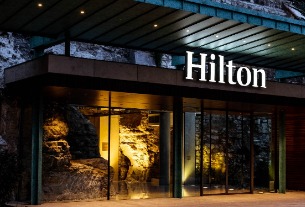Last year’s hotel trends were, in many ways, shaped heavily by consolidation and the drama that accompanies mega mergers and acquisitions, as well as the direct booking wars waged among hotels and their eternal frenemies, the online travel agencies.
Given what’s happened in the past year, this is where we see the various trends culminating.
1. CO-EVERYTHING
When we said co-living could become the next big trend in hospitality, we weren’t kidding. While it’s doubtful that we’ll suddenly see a surge of pod hotels, poshtels, or co-living/co-working spaces flooding the hospitality scene in 2017, the tenets of “co-living” — that emphasis on collaboration and community — will permeate much of the hotel guest experience in 2017.
In 2017, expect to see even more emphasis an investment on communal areas, as well as on spaces and experiences that bring people together.
2. GOOD DESIGN GOES MAINSTREAM
Thoughtful design isn’t something exclusive to boutique hotels anymore — it’s the basic price of admission these days. Skift Senior Editor Greg Oates pointed out as much when he demonstrated how Marriott, Hyatt, and Hilton are shedding their outdated design legacies.
Whether your hotel is ultra-luxury or bare-bones budget, your guests are going to expect it to look good, and feel good. And if current retail and interior design successes are any indication these days, they are proof that you don’t necessarily need deep pockets to have good design.
3. EXPERIENCES BEYOND THE HOTEL
Whether or not Airbnb’s gamble on Trips succeeds or fails, the mere fact that the company has launched tours and activities should be a clear signal to hotels that they too need to be paying more attention to guests’ experiences not just inside the hotel but outside of it. They need a much more holistic approach to overall guest experience than they’re used to delivering.
4. CONCEPTS OF LOYALTY NEED TO EVOLVE
The loyalty program remains the backbone of so many different hotel companies’ master strategies, and that certainly won’t change at all in 2017. And while so many hotel companies are placing so much emphasis and scrutiny on their loyalty programs, we hope they won’t follow in the footsteps of the airlines.
5. HOSPITALITY WILL REDISCOVER ITS ROOTS
A lot of times it can be easy to forget that, at the heart of it all, the travel industry — especially the hospitality industry — is really about people. We don’t mean to, but sometimes, in the pursuit of efficiency and profit, we as an industry have forsaken our biggest and most important resource: humanity.
Two Roads Hospitality CEO Niki Leondakis reminded us that the real disruption and innovation in hospitality doesn’t lie in technology or constructing great spaces. It’s about the service, and the people delivering it.
6. “LOCAL” WILL REGAIN ITS MEANING
Hotels need to stop thinking of bringing “local” into the hotel through artisanal hand soaps or “locally sourced, free-range bacon.” In the same vein of bringing more humanity back to travel and hospitality overall, hotels need to start thinking more about their local community, too.
AccorHotels CEO Sebasiten Bazin said there are “zillions of services we’re going to get into,” among them having hotels assist locals with simple tasks and solving everyday solutions like holding packages or keys or recommending the best services nearby.
7. LUXURY THAT’S LEANER AND SMARTER
Today’s concepts of luxury aren’t limited to 1,000-count-thread sheets or the finest Russian caviar, and given what’s happening overall in terms of global shifts in consumer behavior, it’s clear that experience is winning out over the material when it comes to the kind of luxury that consumers prefer.
What will really set a luxury brand apart today — what defines lean luxury — is everything else. It’s personalized service. It’s having a clearer sense of community and place. It’s craftsmanship. It’s having a story to tell.
8. THE SMART HOTEL EMERGES
Not all hotels will become like the Wynn Las Vegas, equipping each and every hotel room with its own Amazon Echo smart speaker device, but we can expect more on-demand technologies to find their way into hotels in 2017.
That’s simply a given, especially as hotels continue to make large investments in beacon technologies, messaging,streaming in-room entertainment, and other smart hotel concepts.
9. EXPECT EVEN MORE BRANDS TO EMERGE, BOTH NEW AND FAMILIAR
Maybe Marriott won’t be adding any more brands to its portfolio of 30 anytime soon, but when it comes to its peers, Hilton included, there’s certainly room to grow.
In 2017 we should also expect to see even more non-traditional hotel brands entering the hospitality space, as we did in 2016 with West Elm and Karl Lagerfeld, for instance. Zappos Hotels, Muji or IKEA?
10. DATA INTERPRETATION IS THE ULTIMATE INTELLIGENCE
Now that we’ve advanced enough to know how to collect or mine data, it’s up to the industry to know what to do with that information.
There’s an extraordinary amount of information available, but a real dearth of information that’s potentially relevant to any one individual. A lot can still happen in the hospitality business. It’s a breeding ground for ever more innovation.
In 2017, it’s clear that the hospitality industry needs to be prepared for even more disruptions that lie ahead. And to be prepared, it’s clear hotels need to look beyond the boundaries of their own industry to take stock of what’s happening, not only in travel, but the greater world beyond it.
Read original article




